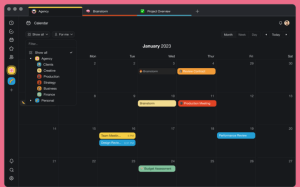2021 is shaping up to be a great year for developers, but not so much for companies hiring them, with 61% of HR professionals believing this will be their biggest challenge in the year ahead.
” data-credit=”fizkes / iStock” rel=”noopener noreferrer nofollow”>
Recruiters expect a shortage of qualified programmers in 2021.
fizkes / iStock
Hiring managers worry that they’ll struggle to recruit programmers in 2021 as companies double-down on their efforts to boost tech talent.
That’s according to CodinGame’s latest developer survey, in which 61% of HR professionals reported than finding qualified developers would present their biggest recruitment challenge of 2021.
SEE: 10 ways to prevent developer burnout (free PDF) (TechRepublic)
The survey, based on the responses of 15,000 developers and HR managers, found that businesses will feel the squeeze of a more competitive tech talent market this year as more companies scramble to fill new tech roles.
This has been largely driven by the events of 2020, during which businesses adapted to working remotely in the cloud.
CodinGame’s survey found that 64% of companies were looking to hire up to 50 developers this year. Others had more ambitious recruitment targets: 14.4% said they planned to hire 50 to 100 developers, while 13.5% hope to recruit over 100 new developers in 2021 alone.
The survey also revealed an urgency to fill these positions, with 24% of HR professionals reporting that recruiting within tight time frames would present a major challenge. A quarter (25%) of respondents listed standing out from other companies as their main difficulties when tempting developers to apply for advertised roles.
Freedom of choice
While recruiters are poised to battle over tech talent in 2021, software professionals stand to benefit from a lot more freedom about who they work for – and where – in the year ahead.
When asked how easy they felt it would be to change jobs in 2021, on a scale of one to 10, developers gave an average answer of seven.
More than anything, programmers want exciting work to do: 20% of respondents said that having interesting technical challenges to solve was the most important factor when considering a job offer. This was followed by flexible hours and a healthy work-life balance (18.5%), salary (13%), and company culture and values (10.9%).
SEE: These are the programming languages most in-demand with companies hiring (TechRepublic)
According to CodinGame, hiring managers “haven’t quite got the message”: while they considered technical challenges and salary of high importance to developers, only 6.8% recognized the significance of offering flexible working hours.
Coders don’t want to be working from home all of the time. When asked if they preferred to work remotely or at the office, 43% said that they’d choose to work remotely a few days a week. This lines up with what companies are offering candidates, with 53% of HR managers saying they offered hybrid working arrangements, with a few days in the office and a few days working remotely each week.
Twenty-four per cent of developers said they’d prefer a role that was fully remote, while just 5% said they’d choose a role that was performed entirely in an office.
Targeting talent
CodinGame’s survey also offered tips on how companies can improve their recruitment process and target the right candidates.
Half of developers (50%) said being targeted with irrelevant job opportunities was the thing they disliked most. Forty-eight per cent said a lack of feedback after attending interviews was a source of frustration, while 38% of respondents were put off by irrelevant technical interview questions and exercises.
When it came to actually finding jobs, 78.3% of developers said they used LinkedIn as their go-to platform, followed by job boards (30%). Twenty-seven per cent of respondents used CodinGame.
Interviewees prefer informal interviews (21.9%) or live coding interviews (19%), compared to just 15% of developers who think video conferencing is the way to go. Developers may need to taper their expectations in the short term: of the 51.6% of respondents who had recently been through a hiring process, the majority (34%) said the process was either entirely or partially remote.
SEE: TechRepublic Premium editorial calendar: IT policies, checklists, toolkits, and research for download (TechRepublic Premium
While highly qualified coders are in high demand, CodinGame’s survey found that recruiters also consider developers who have trained via non-traditional routes, such as self-taught developers and those who’d attended training ‘bootcamps’ . Only 20% of HR professionals said they wouldn’t consider non-academic backgrounds when hiring.
Aude Barral, co-founder of developer recruitment platform CodinGame, said: “Our latest report on the developer profession highlights the rise of telecommuting and virtual hiring in 2020 …as businesses adapted to working in the cloud. Although Covid has largely been behind this shift, it will be interesting to see if these trends continue in 2021.
“We’ve also seen more tech recruiters hiring developers who haven’t followed the traditional academic route. A computer science degree is no longer a must-have if you want a career as a programmer. With the wealth of online and offline resources available to everyone, coders of all levels of technical competence can improve their programming skills, opening up job opportunities in the booming tech sector.”
Also see
Source of Article




